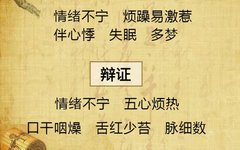‘Yin Deficiency with Excess Heat’ is a condition recognized in Traditional Chinese Medicine (TCM). It primarily refers to a state of accelerated metabolism and internal heat. Additionally, this condition can lead to deteriorating skin, oral ulcers, and constipation, which are typical symptoms of ‘Yin Deficiency with Excess Heat’. When experiencing this condition, timely regulation is necessary; a light diet is recommended, along with sufficient rest and moderate exercise for improvement.
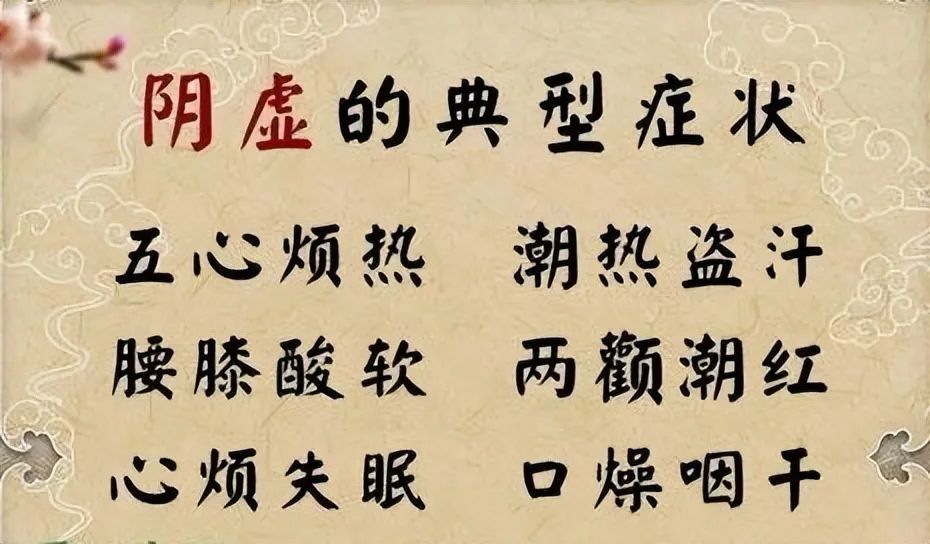
How to Regulate ‘Yin Deficiency with Excess Heat’
What are the symptoms of ‘Yin Deficiency with Excess Heat’?
Common symptoms include: irritability, flushed cheeks, and increased sexual desire.
Symptoms of ‘Yin Deficiency with Excess Heat’: Yin deficiency fails to restrain Yang, leading to an overactive Yang and resulting in the syndrome of ‘Yin Deficiency with Excess Heat’. This syndrome can affect different organs, primarily the heart, lungs, liver, and kidneys.
(1) Main symptoms: dry throat, dry mouth, irritability, and a red tongue.
(2) Clinical manifestations: dry throat, irritability, red tongue, and a thin rapid pulse. Symptoms may include vivid dreams at night, palpitations, a cracked tongue, short and yellow urine (heart fire), headaches, facial flushing, dry and painful eyes, bitter mouth, dry and hard stools, and a wiry pulse (liver fire), or dry cough with little phlegm, possibly blood-streaked (lung fire), or tidal fever, flushed cheeks, nocturnal emissions in men, and in women, dreams of sexual intercourse (kidney fire). The excess heat can manifest in various organs.
(3) Symptom analysis: The mechanism behind the various symptoms is that Yin deficiency generates heat; Yin deficiency leads to dryness and a tendency towards hyperactivity.
(4) Development and impact of this syndrome: This syndrome often presents as a chronic condition. As Yin continues to weaken, heat becomes more pronounced, further damaging Yin, creating a vicious cycle that exacerbates the condition, often leading to depletion of kidney Yin and essence, and potentially resulting in a critical state of Yin exhaustion and Yang excess.
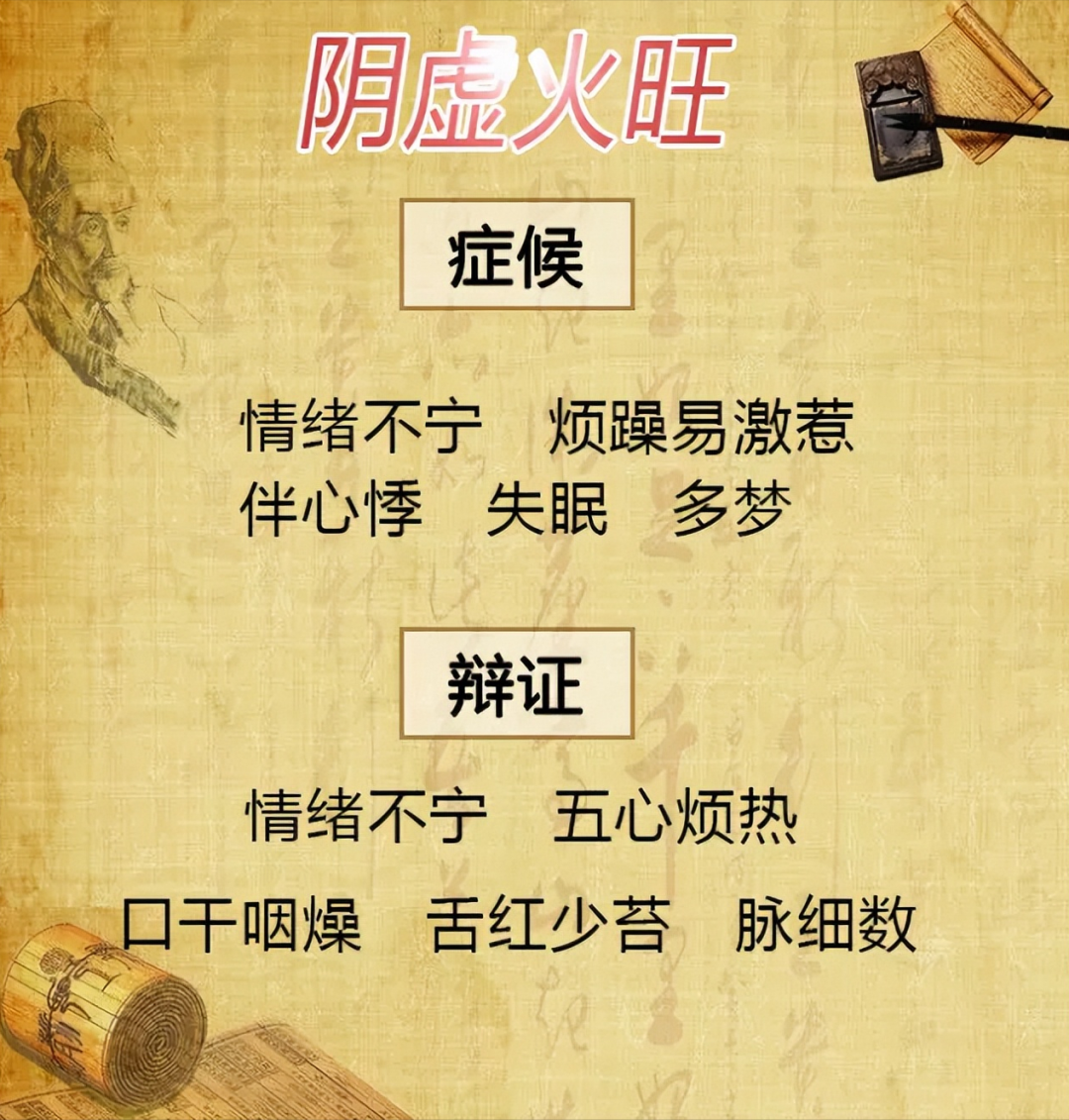
Clinical manifestations of ‘Yin Deficiency with Excess Heat’: afternoon tidal fever, or night sweats, aversion to clothing, hot palms and soles, tidal fever, irritability, insomnia, flushed cheeks, night sweats, dry mouth and throat, dry and hard stools, scant yellow urine, dry red tongue or cracked tongue, little or no coating, and a thin rapid pulse. Symptoms may also include recurrent oral ulcers, pain, dizziness, and fatigue.
The occurrence of oral ulcers is due to ‘heat in the heart and spleen’, which is closely related to ‘Yin Deficiency with Excess Heat’, especially in cases of recurrent or habitual oral ulcers, which are generally caused by kidney Yin deficiency and heart-spleen heat. Thus, regulating ‘Yin Deficiency with Excess Heat’ can also help heal oral ulcers.
What causes ‘Yin Deficiency with Excess Heat’?
Causes of ‘Yin Deficiency with Excess Heat’: This refers to the loss of Yin essence, such as semen and bodily fluids, leading to pathological changes of excessive fire. Symptoms primarily include increased sexual desire, irritability, flushed cheeks, dry mouth, and hemoptysis.
‘Yin Deficiency with Excess Heat’ indicates an imbalance of Yin and Yang, where Yin deficiency leads to Yang excess and the generation of heat (fire). In addition to the internal heat phenomenon, symptoms may include facial flushing, red eyes, dry throat, sore throat, bleeding, irritability, little coating, a thin red tongue, and a rapid pulse.
‘Yin Deficiency with Excess Heat’ indicates a deficiency of Yin in the organs, leading to insufficient nourishment and the internal generation of heat. This condition can occur in the heart, liver, lungs, spleen, and kidneys, with kidney Yin deficiency being the most common, presenting symptoms such as tidal fever, night sweats, irritability, insomnia, or premature ejaculation and nocturnal emissions in men, scant or absent menstruation in women, or tidal fever, weakness in the lower back and knees, and tinnitus.
The primary function of Yin is to nourish and moisten the organs and tissues, as well as to restrain Yang Qi to prevent its excessive exposure. Yang Qi is characterized by heat, movement, and elevation, while Yin corresponds to cold, stillness, and descent. If Yin is deficient and unable to restrain Yang Qi, the body will exhibit a state of excessive Yang Qi and internal heat, known as ‘Yin deficiency leads to internal heat’. As stated in the ‘Inner Canon’: ‘After the age of forty, Yin Qi is halved.’ With aging, or after febrile diseases, or irregular sexual activity, true Yin is easily depleted.
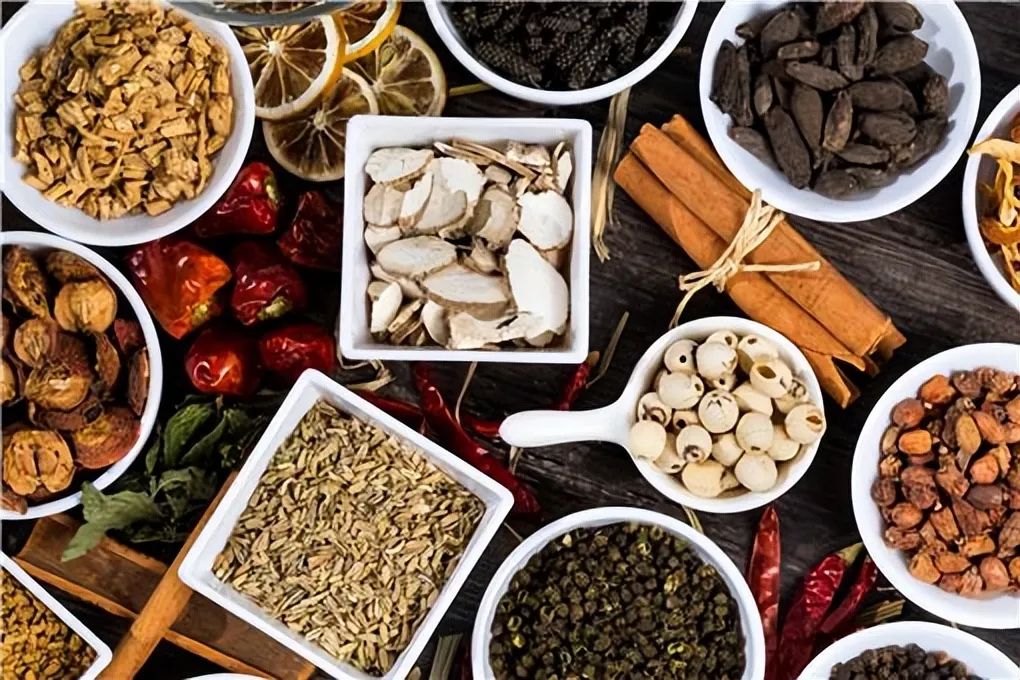
‘Yin Deficiency with Excess Heat’ is not a specific disease but is commonly seen in various conditions such as menopausal syndrome, hyperthyroidism, hypertension, diabetes, post-stroke sequelae, tinnitus, and insomnia. This condition is more prevalent in women, as they are more prone to depleting Yin blood during menstruation. If women in menopause primarily exhibit tidal fever, night sweats, irritability, and insomnia, they clearly show symptoms of ‘Yin Deficiency with Excess Heat’.
Sometimes, during the course of illness and treatment, there may be changes in constitution. A few years ago, I treated a patient with leukemia who originally had a deficiency of righteous Qi. After chemotherapy, he developed symptoms of night sweats, subjective heat, hot palms and soles, and insomnia, indicative of Yang excess and Yin deficiency.
‘Yin Deficiency with Excess Heat’ is often caused by internal Yin deficiency, with excess heat manifesting as false heat. Common symptoms of Yin deficiency include irritability, heat sensations, dry mouth, and night sweats. Depending on the specific condition, it is necessary to conduct symptomatic treatments such as nourishing Yin and clearing heat. Generally, it is advisable to avoid spicy, greasy, and irritating foods, drink plenty of water, and maintain a light diet. Under the guidance of a physician, one can choose herbal medicine or decoctions for treatment.
What are the symptoms of ‘Yin Deficiency with Excess Heat’?
1. Weight loss: A person in a state of ‘Yin Deficiency with Excess Heat’ may appear very thin. Even if their diet is normal, they may look frail. For those with ‘Yin Deficiency with Excess Heat’, the metabolic rate is relatively fast, and the food consumed is easily digested but poorly absorbed, leading to insufficient nutritional supply, resulting in weight loss and muscle relaxation.
2. Irritability and insomnia: As the saying goes, ‘heat attacks the heart’. If the heat is too strong and Yin is too weak, a person’s emotions can become very irritable, often feeling chest tightness, restlessness, emotional fluctuations, and irritability. These negative emotions can easily affect sleep, leading to insomnia and vivid dreams, waking up for no reason at night. These adverse symptoms may be caused by ‘Yin Deficiency with Excess Heat’.
3. Dry and peeling skin: ‘Yin Deficiency with Excess Heat’ is also very harmful to the skin. Due to excessive internal heat, the skin becomes dry and the complexion poor. In severe cases, various inflammatory manifestations may occur, such as a red tongue, thick oral ulcers, skin peeling, and a series of symptoms of excessive internal heat.
4. Poor mental state: If the heat is too strong, the body’s energy consumption will be faster. Even slight movement can lead to fatigue, exhaustion, and collapse. Moreover, the person may seem to lack spirit and vitality, and their mental state may be very poor.
These are all symptoms that occur in the state of ‘Yin Deficiency with Excess Heat’. If you notice one or more of the above symptoms, you should pay more attention to regulating your body. This may be due to an imbalance of Yin and Yang in the body, leading to ‘Yin Deficiency with Excess Heat’, and you should seek diagnosis and regulation from a TCM practitioner to recover your health as soon as possible.
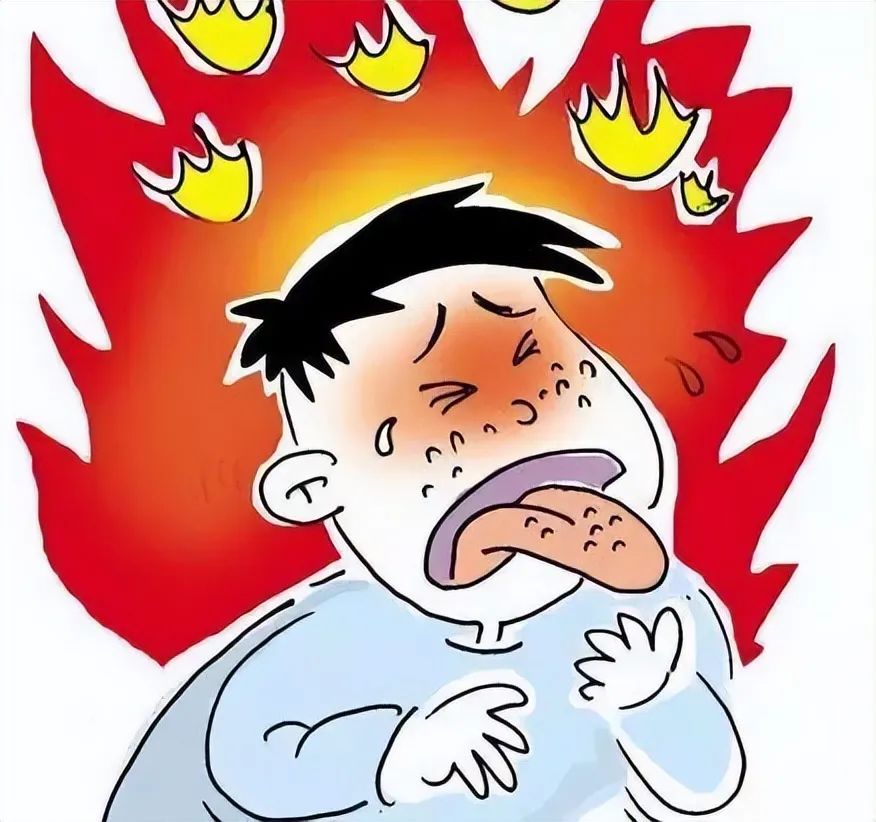
What to do about ‘Yin Deficiency with Excess Heat’? A simple five-ingredient formula can help regulate it.
Ingredients: Shu Di Huang (Rehmannia Root), Ba Ji Tian (Morinda Root), Fu Ling (Poria), Mai Dong (Ophiopogon), Wu Wei Zi (Schisandra).
Shu Di Huang nourishes kidney Yin and directs fire downward; Mai Dong is sweet and slightly bitter, mildly cold, and enters the stomach, lung, and heart meridians, benefiting Yin, moistening the lungs, nourishing the stomach, generating fluids, and clearing the heart to relieve irritability; Wu Wei Zi can astringe the lungs and nourish the kidneys, generate fluids, astringe sweat, stop diarrhea, and calm the mind; Fu Ling strengthens the spleen, drains dampness, and eliminates turbidity; Ba Ji Tian has the effects of tonifying kidney Yang, nourishing kidney Yin, and replenishing essence and marrow.
Thus, adding some kidney Yang tonics to the Yin-nourishing herbs can achieve a synergistic effect of assisting Yang while nourishing Yin.
What to do about ‘Yin Deficiency with Excess Heat’? A simple five-ingredient formula can help regulate it.
1. Those with kidney Yin deficiency, symptoms include weakness in the lower back and knees, tidal fever, dry mouth and thirst, dark red tongue with little moisture, and a thin rapid pulse.
2. Those with ‘Yin Deficiency with Excess Heat’, symptoms include swollen and painful gums, oral ulcers, dry cough, dry eyes, migraines, irritability, and insomnia.
Note: The above formulas should be used only after proper diagnosis and should not be taken blindly.
Note: Some text and image resources in this article are sourced from the internet. The purpose of reprinting this article is to convey more information. If there are any errors in source attribution or infringement of your legal rights, please notify us immediately, and we will delete it promptly and apologize to you.
If you find this useful, 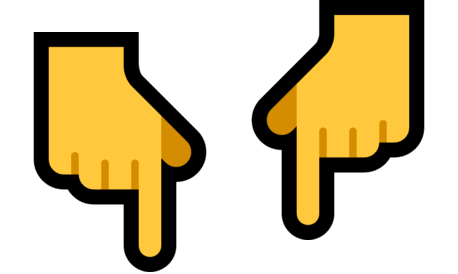 remember to follow us!
remember to follow us!
Editor shares good articles with friends
1. So precious! Over 800 folk remedies, there is no illness that cannot be treated, save for future use!
2. “Starfruit” should not be eaten casually? Reminder: These 6 types of people should eat less, it’s best to know early
3. If you have stomach cancer, doctors fear you eating 3 types of food! Every bite can activate cancer cells
4. As winter approaches, women fear the cold; these 6 foods can be consumed more to warm the stomach, improve complexion, and warm hands and feet
5. What happens if the spleen and stomach Yang is deficient? A simple two-ingredient remedy can dispel cold, tonify Yang, and warm the spleen and stomach
Like is a form of encouragement Share to spread joy

